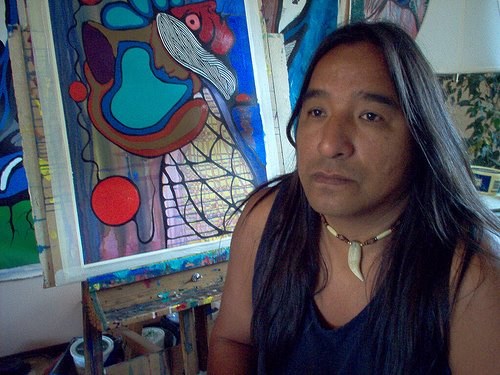THUNDER BAY — Health care professionals working in Nibinamik First Nation say what happened to Moses Beaver in 2017 demonstrates how the level of care and lack of resources in remote Northern Ontario communities can put patients at risk.
“I am frustrated. I am sad. I am angry,” said Paul Hesche, a nurse in Nibinamik First Nation. “I have all sorts of emotions going through my head because we worked very hard to get Mr. Beaver stabilized and get him out as soon as we could. It was truly a disappointment.”
Hesche was among several health care providers testifying in the coroner’s inquest examining the circumstances surrounding the death of Beaver while in police custody in Thunder Bay.
Beaver died at the Thunder Bay Regional Health Sciences Centre on February 13, 2017 after being transferred from the Thunder Bay District Jail.
Testimony on Tuesday and Wednesday provided details of Beaver experiencing a mental health crisis several weeks earlier after returning to his home community.
According to Hesche, Moses first came to the nursing station in Nibinamik First Nation on Jan. 14, 2017 at the urging of family members.
There were concerns Beaver may be a danger to himself or others. Hesche determined Beaver could not be treated in the community and he would need to be evacuated to a larger centre such as Sioux Lookout or Thunder Bay to receive proper assessment and treatment.
Hesche testified that over the next several days he attempted to arrange an medivac for Beaver out of the community through Ornge.
Several challenges delayed any transport being arranged, including the weather and finding security or police to assist in the transportation of a patient with mental health issues.
On Jan. 16, 2017, Hesche said he was contacted by Ornge saying a plane that was heading to the community had to be redirected to another community for a higher priority call based on their triage.
“I am frustrated because I am unable to seemingly get Mr. Beaver out to the expertise that he needs with regard to his mental health,” Hesche said. “I’m worried about the community because they have taken on great responsibly and I’m worried about us as nurses.”
Another roadblock Hesche faced was that patients from remote communities must be accepted by an emergency physician in the facility they are to be sent.
On Jan. 18, 2017, Hesche learned that Beaver was in police custody in the community and would be transported by the Nishnawbe Aski Police Service to Thunder Bay.
“In reviewing my notes on many occasions in the last six years, I’ve thought to myself what I would do differently. Based on my notes and recollection, I did not know what I could have done differently. I advocated on behalf of the patient and the community,” Hesche testified.
“I would say the community went above and beyond and that’s what they do. They are very community and family orientated. Without the community and their assistance, it would have been even more difficult than what it was.”
Also called to testify on Tuesday was Dr. Megan Bollinger, who was contracted by the Sioux Lookout First Nation Health Authority as a physician serving remote communities in Northern Ontario, including Nibinamik First Nation.
Bollinger was in Sioux Lookout on Jan. 14, 2017 and was in contact with Hesche throughout regarding Beaver’s situation.
According to Bollinger, getting care for patients in remote communities, including those experiencing a mental health crisis, often involves making numerous phone calls to find a facility that will accept them.
“It’s not uncommon that we have patients presenting with suicidality and requiring psychiatric assessment and are told they must go through medical assessment in Sioux Lookout first,” she said.
Bollinger testified that Beaver’s family had expressed concern about his safety and she was growing increasingly concerned as well.
“I think the one thing I had to be hopeful about was he was still agreeable to go on a medivac and seek help,” Bollinger said, but added that she was devastated when she learned Beaver had been taken into police custody.
“I hoped that he would receive more assistance and I was disappointed we were not able to get him out on a medivac,” she said.
Bollinger expressed her frustrations in a letter sent in December 2017 to various health care stakeholders in Ontario.
“Patients in the north suffering from mental health emergencies are often treated as prisoners, without the basic human dignities they should be afforded, and would be, in another setting,” the letter reads. “When dealing with a crisis we have such a lack of appropriate facilities, personnel, and resources, that the situation is often dangerous and inhumane.”
According to Bollinger, as of 2023 there have been some changes made to improve the situation but many health care challenges in the north remain.
Dr. Bruce Sawadsky, medical director with Ornge began testimony on Wednesday, providing details on some of the challenges it faces, including difficulties in arranging police escorts on medivacs.
Sawadsky will continue his testimony on Thursday. The inquest is scheduled for three weeks.
